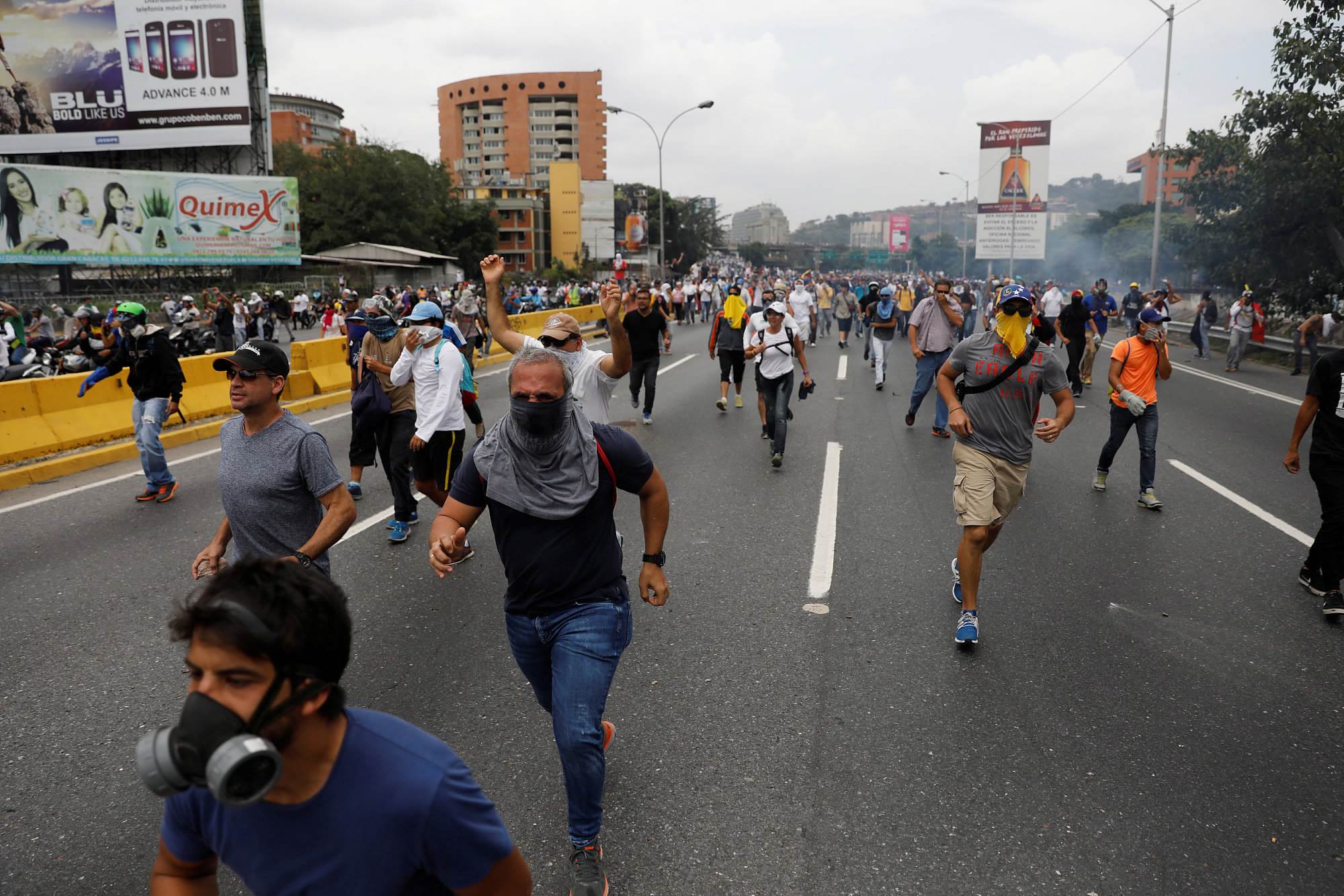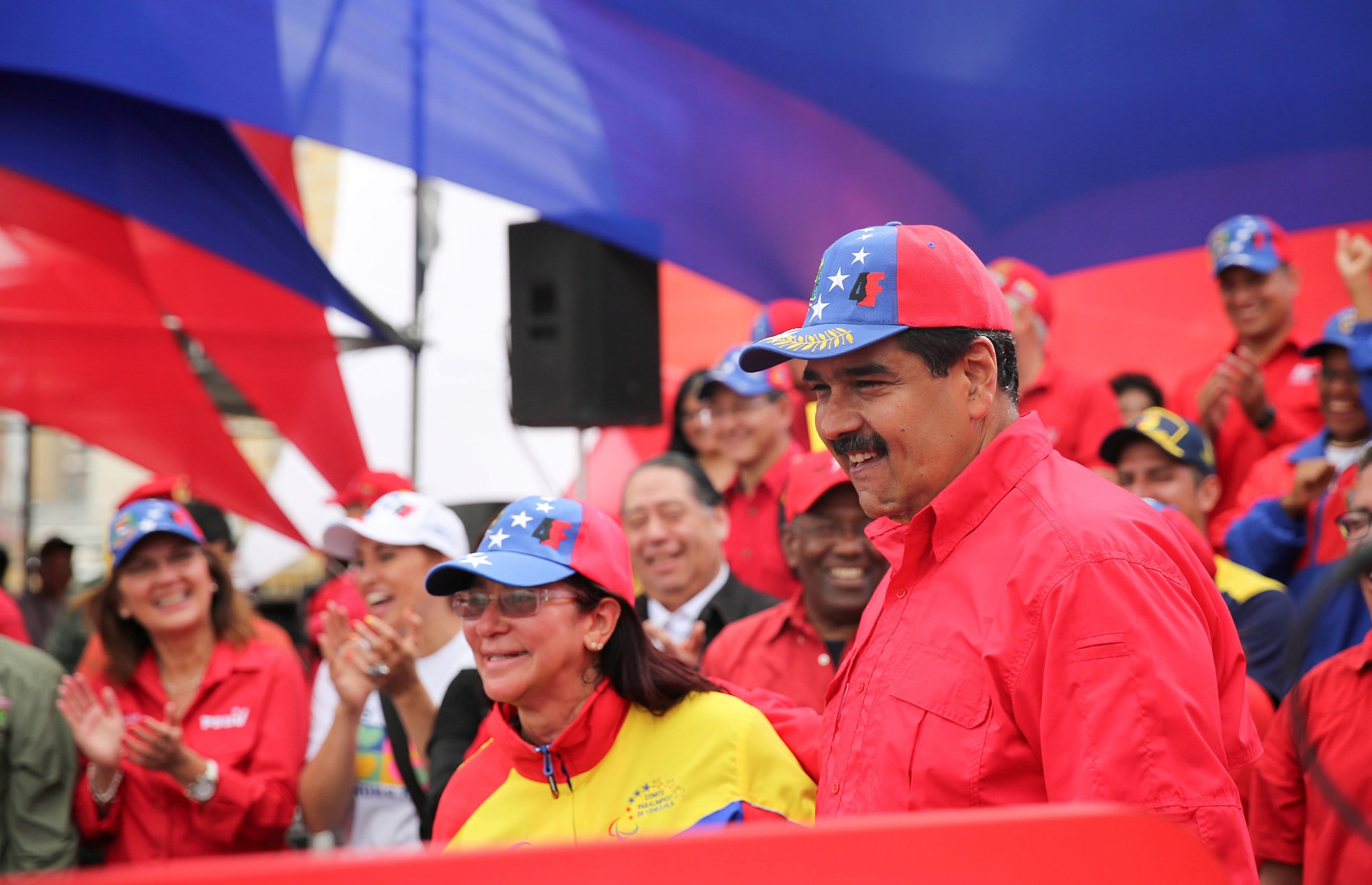Protests resumed in Venezuela’s capital Caracas on Thursday to pressure President Nicolas Maduro to step down, a day after three people were killed in similar demonstrations.
Crowds were smaller than the hundreds of thousands of people who flooded the streets of Caracas on Wednesday, the largest in several weeks of protests against Maduro.
The opposition accuses Maduro of eroding democracy and leading the country into an economic crisis with triple-digit inflation and shortages of food and basic consumer goods.

Opposition supporters clash with riot police while rallying against Venezuela's President Nicolas Maduro in Caracas, Venezuela April 20, 2017. /CFP Photo
Riot police on Thursday fired tear gas to break up scores of protesters on Caracas' west side who were trying to join a larger march - though there was no immediate repeat of Wednesday's violent clashes.
There was a heavy security presence in the capital and other flashpoint cities, with armored trucks and riot police guarding the main roads.
Pressure on Maduro has been mounting since 2014, as falling prices for Venezuela's crucial oil exports have sent the once-booming economy into a tailspin.
The crisis has escalated since March 30, when Venezuela's Supreme Court moved to seize the powers of the legislature, the only lever of state authority not controlled by Maduro and his allies.
Hundreds of thousands of protesters took part in Wednesday's marches.
Two students and a National Guard sergeant were killed in Wednesday's demonstrations, bringing the death toll in demonstrations this month to eight. Rights group Penal Forum said more than 500 people were arrested in relation to Wednesday's protest and 334 remained in detention.
UN Secretary-General Antonio Guterres on Thursday urged all sides in Venezuela to make "concrete gestures" to ease the tension.
"We are concerned about the latest developments in Venezuela and urge that all efforts be made to lower tensions and prevent further clashes," a spokesman for Guterres said in a statement on Thursday.
The European Union called the deaths of protesters "highly regrettable" and urged all sides to "de-escalate."

Venezuela's President Nicolas Maduro (R) and his wife Cilia Flores attend a rally in Caracas, Venezuela April 19, 2017. /CFP Photo
Maduro, 54, called on his backers to stage counter-demonstrations in Caracas on Wednesday. Supporters of the president, who was elected in 2013 and assumed the socialist mantle of late leader Hugo Chavez, say the opposition's street protests are violent disruptions of public order that exceed the rights of free assembly and would not be tolerated in any other country.
The Supreme Court move in March to assume the powers of the opposition-led Congress was largely reversed a few days later. Protests have been further fueled when the government barred the opposition's best-known leader, two-time presidential candidate Henrique Capriles, from holding public office.
(Source: AFP, Reuters)









